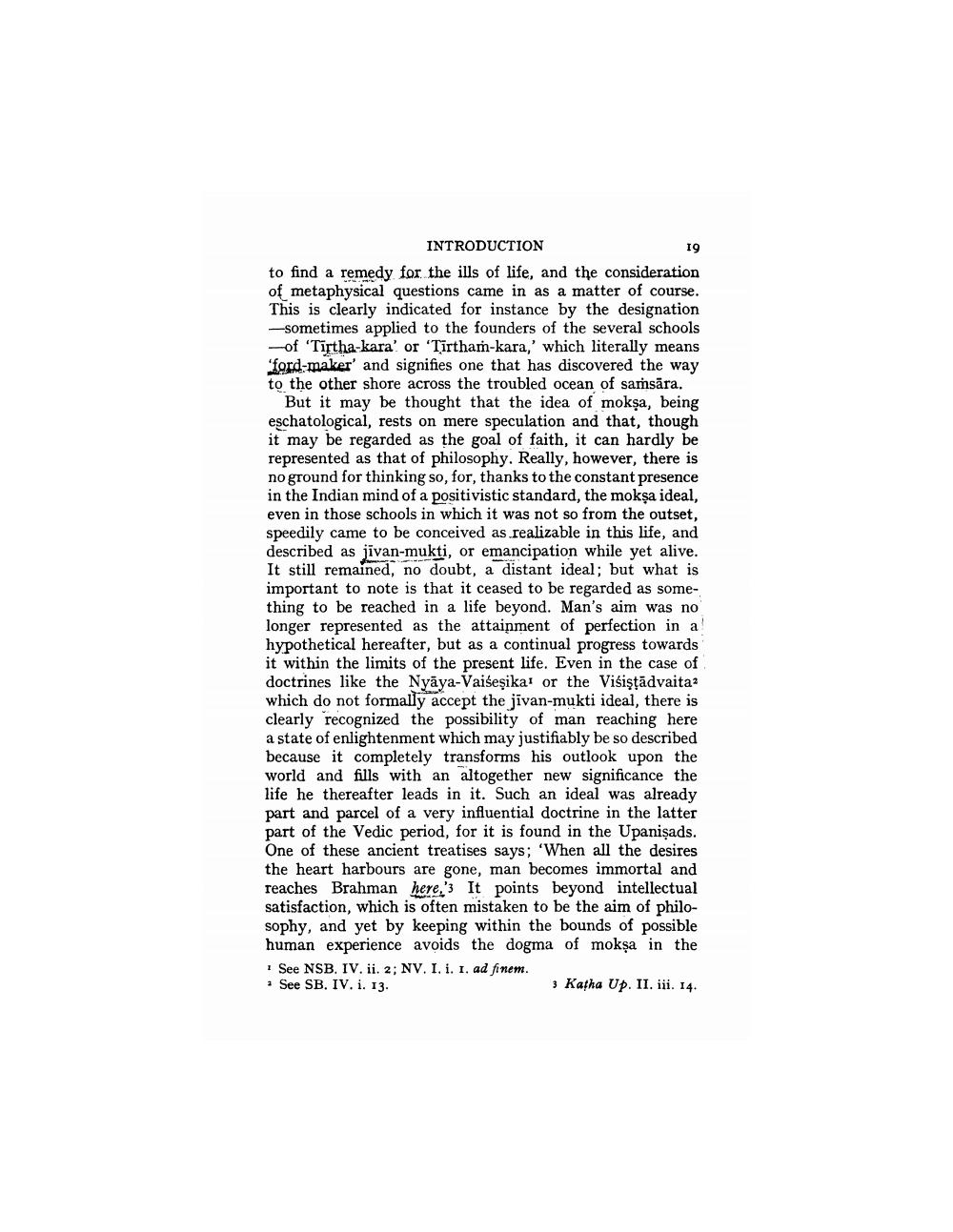________________
INTRODUCTION to find a remedy for the ills of life, and the consideration of metaphysical questions came in as a matter of course. This is clearly indicated for instance by the designation —sometimes applied to the founders of the several schools -of "Tirtha-kara' or 'Tīrtham-kara,' which literally means 'ford-maker' and signifies one that has discovered the way to the other shore across the troubled ocean of samsāra.
But it may be thought that the idea of mokşa, being eschatological, rests on mere speculation and that, though it may be regarded as the goal of faith, it can hardly be represented as that of philosophy. Really, however, there is no ground for thinking so, for, thanks to the constant presence in the Indian mind of a positivistic standard, the mokşa ideal, even in those schools in which it was not so from the outset, speedily came to be conceived as realizable in this life, and described as jivan-mukti, or emancipation while yet alive. It still remained, no doubt, a distant ideal; but what is important to note is that it ceased to be regarded as something to be reached in a life beyond. Man's aim was no longer represented as the attainment of perfection in a hypothetical hereafter, but as a continual progress towards it within the limits of the present life. Even in the case of doctrines like the Nyāya-Vaišeşikat or the Visiştādvaitaa which do not formally accept the jivan-mukti ideal, there is clearly recognized the possibility of man reaching here a state of enlightenment which may justifiably be so described because it completely transforms his outlook upon the world and fills with an altogether new significance the life he thereafter leads in it. Such an ideal was already part and parcel of a very influential doctrine in the latter part of the Vedic period, for it is found in the Upanişads. One of these ancient treatises says; 'When all the desires the heart harbours are gone, man becomes immortal and reaches Brahman here,'3 It points beyond intellectual satisfaction, which is often mistaken to be the aim of philosophy, and yet by keeping within the bounds of possible human experience avoids the dogma of moksa in the · See NSB. IV. ii. 2; NV. 1. i. 1. ad finem. · See SB. IV. i. 13.
3 Katha Up. II. iii. 14.




